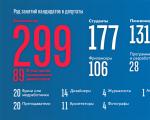The spot market is an instantaneous execution of all deliveries and settlements in full. Spot gold market What transactions does spot trading include?
Any financial market, regardless of whether it is a stock market or a foreign exchange market, can be divided into two separate segments: the derivatives market and the spot market.
And if everything is more or less clear with the derivatives market, because... its specificity fully corresponds to its name and all transactions carried out on it are not implemented immediately, but after a period of time specified by the parties. Not everyone knows what the spot market is. Let's look at the difference between these types of markets and what the term "spot" means.
A spot market is a market in which all goods (currency, securities, raw materials, etc.) are bought and sold exclusively for cash and on the basis of immediate delivery.
The second name for the spot market is the cash market. The parties conduct transactions on it, guided by the market price of the asset established at the time of the transaction, and not by the one that will prevail in the market at the time of delivery.
This detail is especially important for traders, primarily foreign exchange traders, which is why almost all spot markets work with it. And the largest spot foreign exchange market is, naturally, Forex.
Features of the spot market
- Carrying out asset purchase/sale transactions and settlements thereon within a maximum of two business days.
- A significantly higher degree of asset volatility than in the derivatives market. This situation arises due to the fact that pricing on the spot market largely depends on the relationship between supply and demand for the asset.
- No interest rate on the value of the delivered asset.
- Fixed exchange rates for currencies and other assets.
- Carrying out most of the transactions electronically, with confirmation of transactions through advice notes (electronic notices).
Best Forex Brokers
Alpari is the undisputed leader in the Forex market and today the best broker for traders from Russia and the CIS countries. The main advantage of the broker is reliability, confirmed by 17 years of work. Alpari gives traders the opportunity to earn and withdraw profits.

Roboforex is an international broker of the highest level with CySEC and IFCS licenses. On the market since 2009. It provides a range of innovative tools and platforms for both traders and investors. It is famous for its excellent bonus program, which includes a free $30 for beginners.
Common features of the spot market and the derivatives market
- Market relations in both cases are based on the classical laws of a market economy. This is manifested in pricing principles, competition, etc.
- The state controls participants in both markets using the same documents and regulations.
- The general infrastructure of markets, which manifests itself in the same financial institutions and technical means serving market participants.
In principle, similar features of the derivatives and spot markets relate, for the most part, to organizational and technical issues that are not particularly interesting to us traders. It is much more important what their differences are, because based on them, the trader selects the optimal market for himself.
Differences between spot and derivatives markets
- In the derivatives market, it is often not even the assets themselves that are sold and bought, but the rights and obligations of the parties in relation to them. That is, for example, when entering into a contract, you do not receive the asset that appears in it, but become the one who has the rights to it after the expiration of the contract.
- Various assets and trading instruments. For example, in the derivatives market you can work with the above-mentioned futures, options and others. There is no such thing on the spot market; only real assets are quoted there, which you immediately receive for your use.
- In the derivatives market, not only the delivery of an asset is often delayed, but also the settlements on it. When concluding a contract to purchase an option, you do not pay its full value, but only contribute part of the “guarantee security”. In the spot market, settlements are made immediately and in full.
Experienced traders combine both markets in their work, conducting both immediate and deferred operations. The main thing is that you can work and earn money in any type of market, if you have the desire. By the way, if you are interested in the spot foreign exchange market, here is how to work with it.
Best regards, Nikita Mikhailov
It is no secret that when conducting transactions on any market, be it foreign exchange, commodity or exchange, contracts can be executed either immediately or after a certain time. Based on the time of execution of contracts (i.e., actual deliveries of goods and/or funds specified in the contract), markets can be divided into forward And spot.
In forward markets, the execution of transactions is delayed in time and can occur a week, a month, or even a year after conclusion. Spot markets usually mean markets with instant execution of transactions, although this is not entirely true.
The fact is that in international trade (and Forex is an international, global market), mutual settlements often encounter certain delays associated with the peculiarities of the functioning of financial institutions in different countries, as well as with difficulties caused by the possible location of counterparties in different time zones. A distinction is made between the date of conclusion of the transaction and the date of physical receipt of funds to the account of the counterparties. The last of them is called value date.
On the spot market, transactions are carried out with a value date no later than the second business day after the day the contract was concluded. In this case, transactions are divided into:
- tod(short for today): when settlement occurs on the same day;
- tom(short for tomorrow): when settlement is made the next day after the transaction is concluded;
- spot: when the value date is the second business day after the transaction is concluded.
Thus, contracts with a value date on the second business day are called spot contracts. In turn, those contracts whose value date is more than 2 business days away from the date of the transaction are called forward.
As you know, current prices of goods (and in the case of Forex, current quotes of currency pairs) are often called spot (as opposed to forward or futures, i.e., prices for delivery after some specified time). However, even Tod, Tom and Spot prices for the same product (currency pair) may differ from each other. But, firstly, the difference is, as a rule, very small. And, secondly, most transactions on the spot market occur according to the conditions and prices of Spot. Therefore, it is the Spot price that is considered to be the current price of a product, security or currency pair.
Of course, futures and options also play a role in the Forex market. And there are many traders in whose trading they occupy a significant share. But for the most part, the foreign exchange market is a spot market, since the turnover of transactions on spot terms far exceeds the volume of trading in forward foreign exchange instruments.
Spot-type transactions or spot transactions are usually called transactions for the purchase (sale) of various financial instruments with immediate settlement. Although the word “immediate” here should not be taken literally, in fact this period can stretch up to two business days.
A spot transaction is the antipode of forward (terms) transactions, in which payment is made not upon the conclusion of the transaction, but only after a certain period (specified in the contract).
Spot transactions can be concluded in all types of financial markets:
- On the FOREX foreign exchange market;
- On the exchange market (stock, commodity and other exchanges);
- On the over-the-counter market (currency, stock, commodity).
Often spot transactions are also called cash or cash transactions. These include all transactions for which settlements take no more than two banking days, namely:
- Transactions of the TOD type (from the English word today, translated meaning - today). Payment for them occurs directly on the day of conclusion (T+0);
- Transactions like TOM (tomorrow – tomorrow). Payment for them is made the next day after the conclusion (T+1);
- Transactions of the SPT type (from the English word spot - place, point). Payment for them occurs on the second banking day after conclusion (T+2).
TOD, TOM and SPT contracts, despite the fact that they are all spot contracts, have different prices. The closer the settlement date, the lower the price and vice versa. So the lowest price of them is the transaction type TOD, then comes TOM and the highest price for the SPT transaction.
In fact, the difference in prices is quite insignificant and is determined by the size of the key rate divided by the number of days in a year. Thus, for TOD transactions, settlements are carried out at the cash price (spot price), for TOM transactions, the price is determined as the sum of the cash price (on the day of conclusion) and the key rate for one day, for SPT transactions, the price is calculated as the sum of the cash price and the key rate for two day.
 Infographics on spot transactions on the Moscow Exchange
Infographics on spot transactions on the Moscow Exchange The spot price, also called the spot price, reflects the value of a real commodity (financial instrument) at the present time, in a specific place, subject to delivery here and now.
Examples of spot trades
When purchasing shares, for example, on the Moscow Exchange, you actually enter into a spot transaction of the SPT type (T+2), since the shares become yours within 2 banking days from the date of the transaction. It is believed that this time is required to register you in the register of shareholders and in the depositary as the new owner of the purchased shares.
Or, suppose your company plans to purchase foreign goods worth $2,000,000. To do this, you first enter into a spot deal on the foreign exchange market in order to purchase these same two million US dollars. Moreover, as mentioned above, the most profitable purchase will be a TOD type transaction (if settlements are made on the same day). By concluding such a deal, you will become the proud owner of two American millions right on the day of its execution.
Well, if you suddenly need to sell those same $2,000,000 for rubles, then the SPT transaction will be the most profitable (the price for it is the most expensive of all spot transactions). However, due to the low liquidity of SPT type transactions, they are often replaced with TOM type transactions.
Spot market
(Spot Market)
In modern conditions, spot and derivatives markets have become widespread
Transactions and price formation on the spot and derivatives markets, instruments used by participants in the derivatives and spot markets to conclude transactions
|
Spot market - definition

In terms of execution, options are divided into two types: American and European. American options can be exercised any day before the expiration date of the contract. European - only on the day of contract execution. Most of the contracts concluded in world practice are American options. Thus, fixed-term contracts have common and distinctive features.
Spot Market is
fxnoob.ru - spot market website
dic.academic.ru - Dictionaries and encyclopedias on Academician
invest-profit.ru - business newsletter for investors Investprofit
vlfin.ru - business newsletter Your personal finances
stock-list.ru - Guide trader Exchange navigator
bankpress.ru - Dictionary of banking terms
piter-press.ru - Economic theory
knigi-uchebniki.com - Library House of Books
Dictionary of legal concepts
We are using cookies for the best presentation of our site. Continuing to use this site, you agree with this. OK
First of all, let's deal with the conceptual apparatus. In general terms, the spot market is a specific territory (platform) for the implementation of transactions for the purchase and sale of securities, currencies, and goods.
In the spot market, any goods are bought/sold for cash with immediate or fast delivery. The spot market is also called the cash or physical market. A specific feature of the spot market is that the parties entering into a transaction are guided and make calculations based on those market prices that are relevant at the time of the transaction, and not at the time of delivery of the goods. A prime example of a commodity that is the subject of transactions on the spot market is oil.
Specific features of spot market goods
Goods sold on the spot market are characterized by a number of specific features, the main of which are their homogeneity and standardization. The largest international spot market is the Forex market, which serves as a platform for exchanging one currency for another for a specific currency pair.
Meanwhile, spot markets, as a rule, are characterized by a high level of liquidity, which means that the client has the opportunity to exit the market at any time. It is also worth highlighting such a characteristic feature of the spot market that distinguishes it from the futures market as. If on the futures market the latter, as a rule, depends on the cost of storing the purchased product, then on the spot price is dictated solely by current supply and demand, which makes prices more volatile.
When listing the factors that play a role in shaping the pricing policy of the spot market, we should not forget about the physical properties of the goods sold, namely the fact whether a particular product is perishable or not. Non-perishable goods include, among other things, precious metals, which are traded on the spot market at a price that reflects future price movements.
The essence of the spot gold market The spot gold market is one of the platforms on which exchange trading takes place. This market has its own specific rules.
The formation of the price of gold on the spot market is specific. Such prices always differ from the prices set at the state level. A characteristic feature is that prices are always higher than those set by the Central Bank. This is primarily due to the fact that when setting the price of gold within the country, the Central Bank is guided by a number of principles characteristic of a particular national economy. The main goal of the Central Bank is to establish a price for gold that would not aggravate the situation in the country’s domestic economy.
Since gold is not a perishable commodity, its value is affected not only by supply and demand that are relevant at the time of the transaction, but also by the predicted price dynamics. Thus, the gold market is a separate platform for the sale of a specific product - gold, which, accordingly, has its own characteristics.
Features of trading on the spot market
In order to effectively sell or purchase gold on the spot market, you should take into account the features that characterize it and affect the formation of the price of gold on this site.
So, the first aspect is the specifics of setting gold prices on the spot market, which was already mentioned in the previous micro-topic.
The second aspect is the price of gold in relation to the factors affecting it.
And finally, the third aspect is the relationship between the first two, which reflects, in general, the economic situation. This allows us to identify those trends on trading platforms that are of utmost importance. Thanks to the analysis of the above aspects, it becomes possible to make preliminary transactions on the spot market.
conclusions
The issue of the mechanism of speculation implemented in this market is relevant. When we talked about the features of the spot market, we mentioned that one of them is the settlement system, thanks to which various speculations become possible. So, if at the time of concluding a transaction one price for gold is set, and at the time of delivery - a completely different one, then the seller, accordingly, can benefit from concluding this transaction by selling the goods immediately after receiving it.
Video about the gold market, reasons for buying and selling




